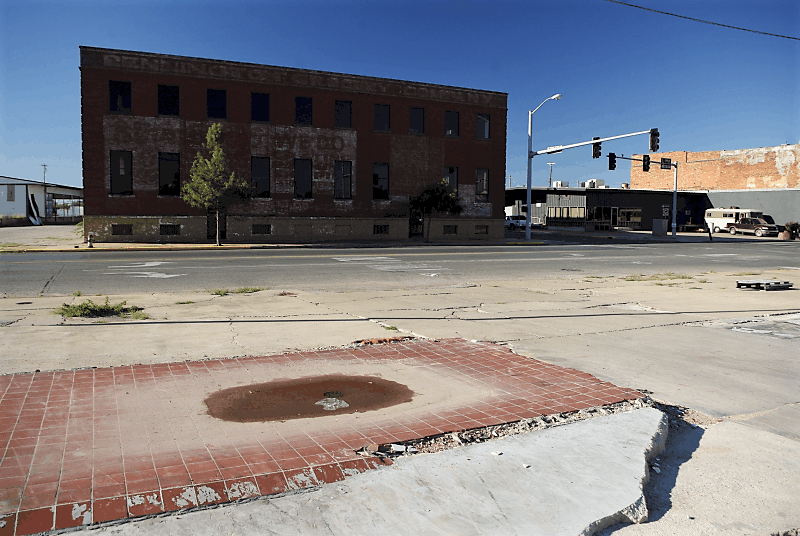
Whether it’s just an empty lot or a huge tract of vacant land, experiments are the best way to fill it. Photo by Becky McCray
A small town official wrote in to ask me what business would work on empty land.
This town had acquired an old industrial site with 30 acres of empty land in the middle of town. They’d like to build a city within a city, maybe a mix of residential and commercial. To get there, they were putting together a list of businesses and other uses that might work.
Don’t make a plan!
Rather than creating a finished plan, I suggested a lot of experiments to find out what might work in their specific situation.
I don’t have any list of what business will work because of course it’s different in every location. The right answers are going to emerge from the tests, experiments, temporary projects, and tiny trials. That’s how you’ll learn what will work.
Experiment your way to prosperity
Here are the steps I’d think would make sense to fill any chunk of empty land in a small town:
- Ask a lot of local people what they want to see in your town. Start a public discussion. Tell everyone about your goal. Ask everyone in town what they want to see. Ask school kids, ask adults, ask seniors, ask people in different ethnic or language groups. Run a contest for ideas, sketches, mockups or business plans. Start a hashtag online. Let everyone add their photos, ideas, thoughts and opinions.
Your goal isn’t just to receive the ideas but also to get everyone thinking about the part they could play themselves.
This is essential because it’s not about just the small group of people who are officially tasked with making the decisions, it’s about gathering the whole the community to come together to create it.
- Start with temporary events and projects right now. At every event, display drawings and sketches of what it could be like, lots of different versions, and invite people to add to it. What kind of events could you do? Hold a picnic and talk about what the area could be. Do pop-up businesses in booths, tents, or trailers. Hold a dance party. Even if the ground is rough, you can drag and smooth out a little space to use. There are tons more ideas in our roofless buildings article. Do lots of things at once, or let them overlap, or let groups be working on different ones at the same time.
Your goals are to start using the space to build enthusiasm and also to get lots of people to test tons of different ideas to see what works in your town.
- Build incrementally. After you learn from your pop-ups and temporary fun, add in temporary structures. Think of garden sheds like Tionesta, PA. Cleveland, OH, used shipping containers. (So did Las Vegas, Tulsa, and other big cities.) Temporary structures give a little more permanence at the lowest possible cost. It’s an incremental step.
You aren’t risking millions of dollars on redeveloping the whole tract at once with an untested plan. You’re using what you’ve already learned and giving people more and better places to experiment further.
Add permanent structures like fully-built buildings only a few at a time and as you uncover proven ideas for using them. All those temporary trials give you the proof of what works here. And you can keep doing any of the temporary things that are still working, plus keep experimenting. Let things change based on what you learn. Don’t be afraid to change plans or take something out that isn’t working.
- Include lots of tiny spaces. Right now, there are people in your town who have the seeds of a business. Maybe they just have the idea and want to try, or maybe they’ve done some sales to friends or at an event. The next thing they need is a small space to grow into. The best thing you can do for them is make one of those small spaces available. Include tiny retail space, tiny office spaces, tiny workshops.
Shared spaces let a whole bunch more people try ideas and it gives you a continual pipeline of potential new entrepreneurs.
When you create small spaces, you enable more small entrepreneurs to grow. When you create more small entrepreneurs, you are filling the pipeline of future successful businesses. When you create more successful businesses, your whole town prospers.
With any major empty land development, officials will be under a lot of pressure to draw up one big master plan and stick to it. That’s the biggest mistake you can make. There is no way for any expert to predict what will work next year or 50 years from now. But your own people can come together, experiment, have fun, try things out, and incrementally build something that is a huge asset to your whole community for decades and centuries to come.
New to SmallBizSurvival.com? Take the Guided Tour. Like what you see? Get our updates.










